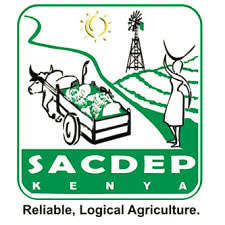
Climate change is becoming one of the major challenges that antagonize Kenya’s achievement of its Sustainable Development Goals. With most of its land mass being arid and semi-arid, the country is highly susceptible to recurrent climate-change related droughts and famine. Though policy and response strategies have been set across board from the national through to county level, acute food and nutrition insecurity still continue to threaten livelihoods as food prices skyrocket by the day.
This scenario is best exemplified in Kajiado County which since 2018, has received little to no rainfall resulting in human livestock and wildlife suffering as water sources dried up, massive crop failure, mass death of livestock, and escalated human wildlife conflict. This calls for concerted efforts and goodwill from both the national and county government as well as development partners in integrating strategies that encourage enhanced agricultural productivity and resilience among communities.
There is urgent need to mainstream climate led programs and development agenda at the grassroots levels with aim to sensitize the locals on the adaptive responses.
As a development organization, SACDEP-Kenya through targeted partnerships with the both national and county governments and its peers in development has been on the fore-front in lobbying for the mainstreaming of Sustainable Ecological Agriculture (SEA) practices as among the key responses and coping strategies for food security.
Adoption of SEA practices among farming communities has been seen to reduce the dependency on rain fed agriculture thus transforming livelihoods at the community and household level.
SACDEP further sets sustainable targets ranging from community water harvesting techniques, livestock integration, reseeding grazing lands and value chain establishment to conservation as shifts to integrated agricultural intervention with the view to bolster resilience.
The Organization has been having been keen to promote adoption of On-farm and Off-farm climate smart adaptation practices as one among the solutions aimed at ensuring food security, improved livelihood and general population well-being. Financial and gender inclusion interventions also need to be examined as well towards attaining a cohesive society. As women and youth form the bulk of the workforce on and off farm, SACDEP has initiated the Banks Without Walls (B.B.W) component in all its projects where youth and women are particularly encouraged to adopt a saving culture.
Through the B.B. Ws initiative, financial inclusion and access to credits has broadened revenue streams amongst the beneficiaries as more youth and women are branching into value-addition and agro-processing recording marked improvements in food, nutrition, and financial security among households.
 From the interventions initiated by SACDEP, communities have cultivated resilience in the face the harsh climatic and economic times. Access to water for household use, farming and livestock through market linkages and value chain development. consumption has increased and stabilized, and land value enhanced
From the interventions initiated by SACDEP, communities have cultivated resilience in the face the harsh climatic and economic times. Access to water for household use, farming and livestock through market linkages and value chain development. consumption has increased and stabilized, and land value enhanced
As an ardent proponent of inclusive development, SACDEP has stood the test of time through encouraging sustainable land use.
As a result, beneficiaries have been exposed to structured social protection mechanisms that encompass safety nets that enhance income generating opportunities and capacities for all.
By Micheal Kiamba is the Loitoktok Regional Project Area Co-coordinator. micheal.kiamba@ SACDEPkenya.org
